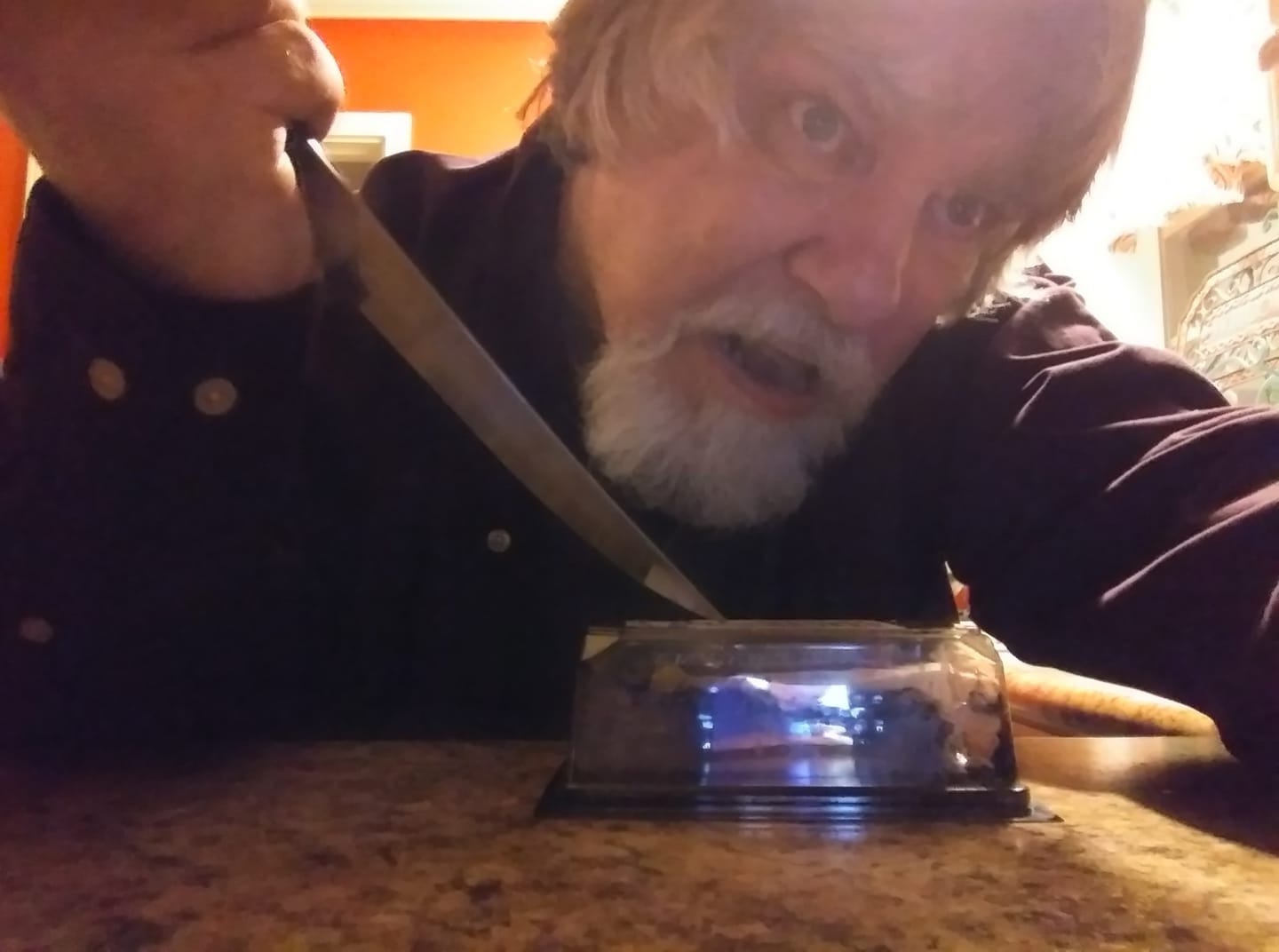This will not be an ad for Ozempic. Nor will it be a jeremiad against the drug. My cardiologist told me a story about GLP-1 and the gila monster. (Yes at a certain age, you suddenly have a "my cardiologist.” Mine is a grandfatherly story-spinner.) Three to four extensive meals in spring are claimed to supply a gila monster with enough energy for a whole season. Scientists wondered why, which is what scientists do. What they also do is investigate.
.What they found was a hormone in the venom of that gila monster that stimulates the production of insulin—similar to a hormone naturally produced by humans, with the jaw-breaking name of glucagon-like peptide-1, which is sensibly abbreviated to GLP-1, (and I’ll leave to you to wonder whether there’s such a thing as GLP-2 or GLP-3). At any rate, other scientists were able to synthesize this hormone and patent it, and then marketers were able to come up with ten thousand names for this wonder drug. I personally am prescribed with Monjauro, which I’m constantly confusing with a local Italian restaurant named Monjuni’s.
You’ve probably already heard that GLP-1 stimulates the production of the body’s insulin and slows stomach emptying. It also (here’s where things get interesting) makes the body think it’s more full after eating.
Think about that: it makes the brain think it’s more full. I’m not going to wade into technical language of how GLP-1 latches on to chemical brain receptors and all that jazz. I’m just going to put it this way: it’s doing something to the brain’s reward centers. And scientists aren’t sure what. But they’re working on it.
What’s surprising in my own experience (and anecdotally, the experience of thousands of others is not that it reduces hunger, but that it exterminates cravings. In some this means the craving for alcohol, nicotine, or cocaine. For me, it has meant greasy food and sweets. Specifically, pizza and cheesecake, the two great loves of my life. Since starting Monjauri, I have ghosted pizza and cheesecake. I no longer take their calls.I haven’t sworn off either. It’s not a break-up. I’m just not interested. I no longer have the craving.
And losing a craving is something like losing a love—or a limb. Yes, one does experience phantom cravings.
Which brings me, as a long-lapsed Catholic boy, to musing on the seven deadly sins. Gluttony, greed, lust, envy, pride, wrath, and sloth all stem, now I think of it, from cravings. Cravings for recognition wealth, revenge, goods, sex, and food.
I suppose sloth is not exactly a craving, unless it's a craving for doing nothing, which would be a sort of zen craving. ("Nothing is exactly what I want--a true zen saying"--Frank Zappa.) Not mere desire for these things—but cravings.
What’s the difference between need, desire, and craving? Desire can be controlled, denied, satisfied. Craving cannot. I suppose, to put it in Biblical terms, that craving is a form of idolatry. You’ll melt down every ounce of gold, every ingot, every sovereign, every gold filling in your mouth to create that golden calf, and then you’ll worship it, even with the desert all around you. Remember this exchange from the movie Key Largo?
Frank McCloud: He wants more, don't you, Rocco?
Johnny Rocco: Yeah. That's it. More. That's right! I want more!
James Temple: Will you ever get enough?
Frank McCloud: Will you, Rocco?
Johnny Rocco: Well, I never have. No, I guess I won't.
I’ve always thought that most of the world’s woes arose from fear (with just a touch of pure evil thrown in)—but could it be that the heart of evil is simply wanting More? More money, more power, more fame, more attention, more everything, and always wanting more. Is craving the real root of all evil?
What if GLP-1 or some variant thereof could take those cravings away, or at least dampen them? Would it be beneficial to prescribe the drug to billionaires? To oligarchs? Would it be ethical to mandate the treatment? Would a regimen of shots interfere with free will? Or is it the craving that interferes with free will? Suppressing our better angels?
What if unrequited love is also a craving? Without it there would be no Dante, no Petrarch, no Yeats. Ambition is another craving: for well-being, for recognition. GLP-1 might prevent a Hitler or a Stalin. It might also prevent a Lincoln or a Churchill. Where’s the line between healthy ambition and megalomania? We’re all on the ambition spectrum.
Of course, Kurt Vonnegut has already been over this ground, or similar, in his story Harrison Bergeron. Harrison is fourteen years old, a genius, an athlete, and Adonis. He lives in a world where everyone has been made equal by the simple expedient of handicapping, like race horses, the brilliant, the beautiful. Harrison escapes prison frees himself from his weights, his mask, the alarms going off in his head that prevent him from any deep thoughts. And he makes this declaration:
"I am the Emperor!" cried Harrison. "Do you hear? I am the Emperor! Everybody must do what I say at once!" He stamped his foot and the studio shook. "Even as I stand here" he bellowed, "crippled, hobbled, sickened - I am a greater ruler than any man who ever lived! Now watch me become what I can become!"
Vonnegut as usual, is even-handed in his warnings. Both “equality” and the ubermensch are double-edged swords.
Am I going too far in flogging the promise or threat of GLP-1? Maybe. Probably. But if a drug can act upon the reward centers of the brain, then it can be modified to affect specific receptors for specific rewards. And you know scientists will tinker. Gluttony is already at bay. Should sinners be concerned?



No comments yet
So leave a comment already
Thanks a million!